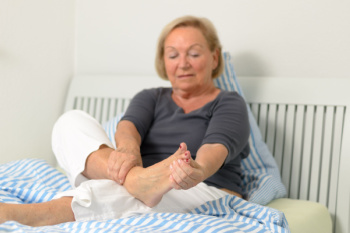Glen Allen Office
(804) 747-3380

Gout, a form of arthritis, presents unique challenges for elderly individuals, necessitating a deeper understanding of its intricacies. Characterized by sudden and severe joint pain, typically in the big toe, gout occurs due to the accumulation of urate crystals in the joints. While gout can affect anyone, its prevalence increases with age, making it a prevalent concern among the elderly population. Various factors contribute to gout development in older adults, including age-related changes in metabolism, chronic health conditions like hypertension and kidney disease, and certain medications commonly prescribed to manage age-related ailments. Dietary habits, particularly rich diets high in purine-containing foods like red meat and seafood, also play a significant role in gout onset and exacerbation. Proper management of gout in the elderly involves a varied approach, encompassing lifestyle modifications, medication adherence, and close monitoring to alleviate symptoms. If you are an elderly person who has had one or more gout attacks, it is suggested that you consult a podiatrist who can help you to manage this condition.
Gout is a painful condition that can be treated. If you are seeking treatment, contact one of our podiatrists from The Podiatry Center. Our doctors will treat your foot and ankle needs.
What Is Gout?
Gout is a form of arthritis that is characterized by sudden, severe attacks of pain, redness, and tenderness in the joints. The condition usually affects the joint at the base of the big toe. A gout attack can occur at any random time, such as the middle of the night while you are asleep.
Symptoms
Risk Factors
Prior to visiting your podiatrist to receive treatment for gout, there are a few things you should do beforehand. If you have gout you should write down your symptoms--including when they started and how often you experience them, important medical information you may have, and any questions you may have. Writing down these three things will help your podiatrist in assessing your specific situation so that he or she may provide the best route of treatment for you.
If you have any questions, please feel free to contact one of our offices located in Richmond and Glen Allen, VA . We offer the newest diagnostic and treatment technologies for all your foot care needs.